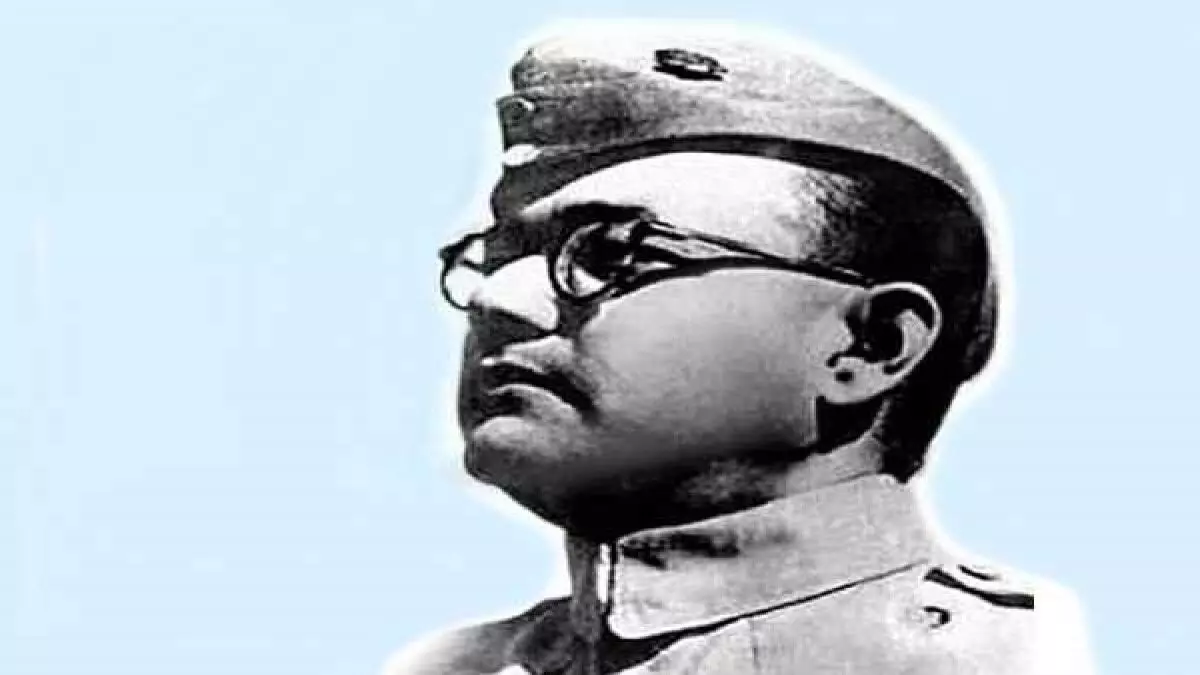‘Never lose your faith in the destiny of India’
One of the country’s most iconic freedom fighters whose death has gathered more controversy than his life, Netaji Subhas Chandra Bose continues to hold relevance in various aspects of industrialisation & nation-building, including masterminding the Economic Planning that was adopted in post-independent India

It is blood alone that can pay the price of freedom. Give me blood and I will give you freedom” – Netaji Subhas Chandra Bose.
Born on January 23, 1897, in Odisha’s Cuttack, Subhas Chandra Bose cleared the Indian Civil Service (ICS) exam in 1920 but resigned a year later to join India’s freedom movement. While he continues to be the most dominant voice of the freedom movement, who believed ‘freedom cannot be earned by non-violence’ as opposed to Mahatma Gandhi’s idea of ‘Satyagraha’ and pacification, the story of Netaji is shrouded in mystery, admiration and adoration.
If the seeds of optimism were sowed by Gandhi, it germinated with Netaji’s vision for India. Even when Netaji’s Indian National Army (INA) was defeated in a battle, the fierce nationalist said: “At this unprecedented juncture in our history I have a word for you. Do not be disheartened by our temporary defeat; be cheerful and optimistic. Above all, never lose your faith in the destiny of India. There is no power on earth which can keep India in bondage. India will be free, and that too, soon. Jai Hind”.
With a vision for nation-building, he knew that a country needs to strengthen its economy for civilization and development. He was the mastermind behind the Planning Commission with Jawaharlal Nehru as the first head of the National Planning Committee.
He pointed out that Indian nationalism was ‘inspired by the highest ideals of the human race, viz., Satyam (the true), Shivam (the good), Sundaram (the beautiful)’:
“Nationalism in India has instilled into us truthfulness, honesty, manliness and the spirit of service and sacrifice. What is more, it has roused the creative faculties which for centuries had been lying dormant in our people...”
He refused to stand behind any particular ‘ism’. No ‘ism’ (he referred to anarchism, socialism, communism, Bolshevism, syndicalism, republicanism, constitutional monarchy, and fascism) was adequate to lift humanity out of misery unless individual characters were strengthened. Indians, he believed, had every quality except tenacity of purpose — what was needed, therefore, was the ability to sacrifice everything for the sake of an idea.
If it was crucial to break free from the restrictive traditions of the past, it was equally important to remain connected with one’s roots and be proud of one’s heritage.
His daughter, Anita Bose Pfaff, mentioned in several interviews how the statesman voiced for gender equality and wanted to build a nation where men and women had the same rights and duties.
A fierce supporter of cottage industries, Netaji in his Haripura address of 1938 mentioned how industrialisation is the only path before India. The modern economist said how it was important to adjust to industrialisation and also explore the possibilities of reviving the cottage industries in India.
“However much we may dislike modern industrialism and condemn the evils which follow, we cannot go back to the pre-industrial era, even if we desire to do so. It is well, therefore, that we should reconcile ourselves to industrialisation and devise means to minimise its evils and at the same time explore the possibilities of reviving cottage industries where there is a possibility of their surviving the inevitable competition of factories. In a country like India there will be plenty of room for cottage industries, especially in the case of industries, including hand-spinning and hand-weaving, allied to agriculture,” he said.
As the country celebrates his 126th birth anniversary, it’s time we remember Netaji’s vision for nation-building alongside his valour, his foresight of India’s military prowess and his contributions towards India’s independence which “left to non-violence alone, freedom would have come to us in India somewhere in the 1980s or 1990s, just as it had come to South Africa only in April 1994 because it had relied on non-violence alone”; not to forget in the pacific hoopla and self-congratulations, some 26,000 INA soldiers, of the 60,000 INA soldiers, who had laid down their lives to free the country…”



